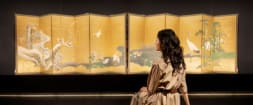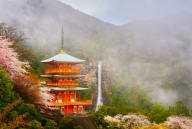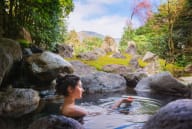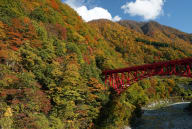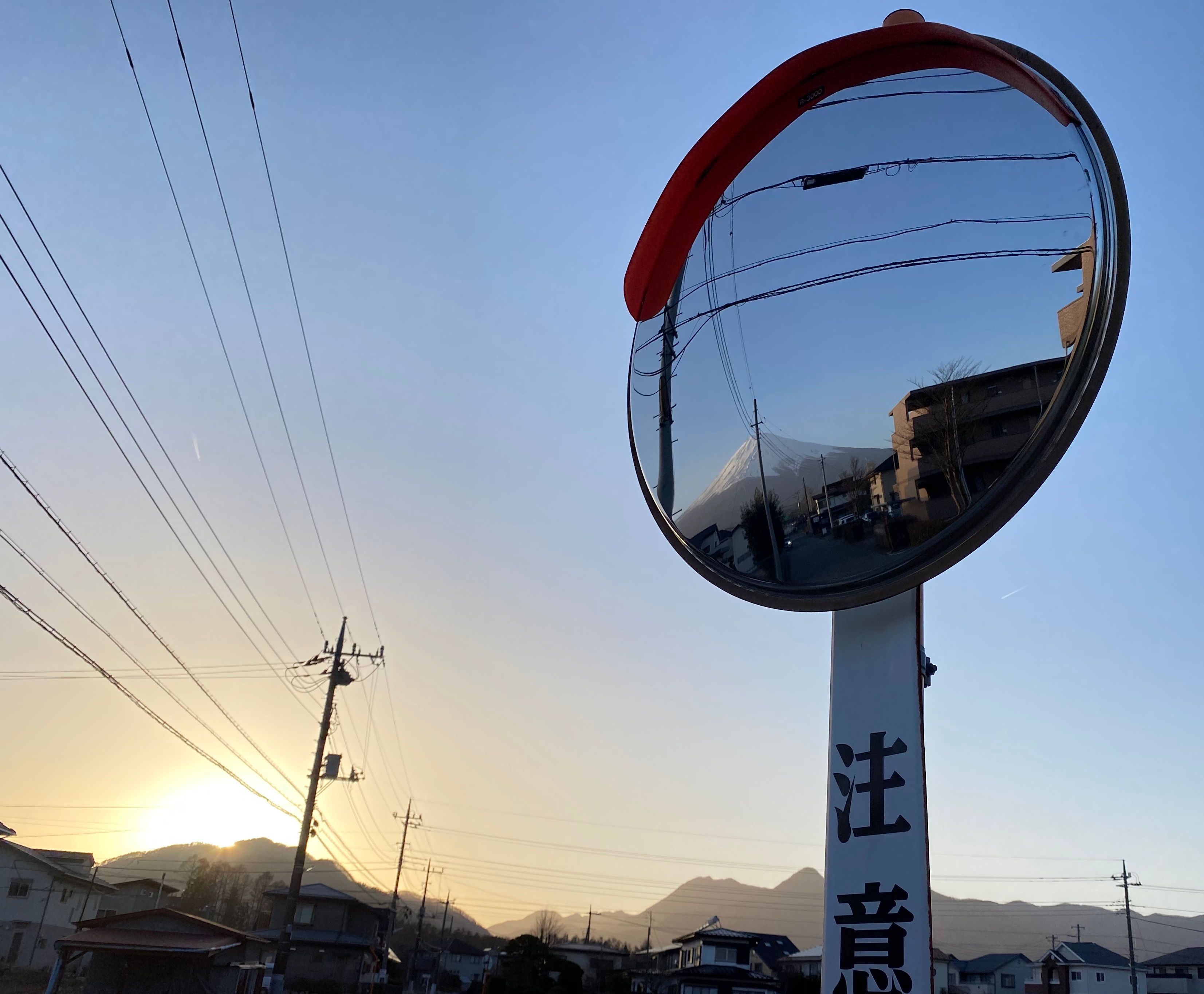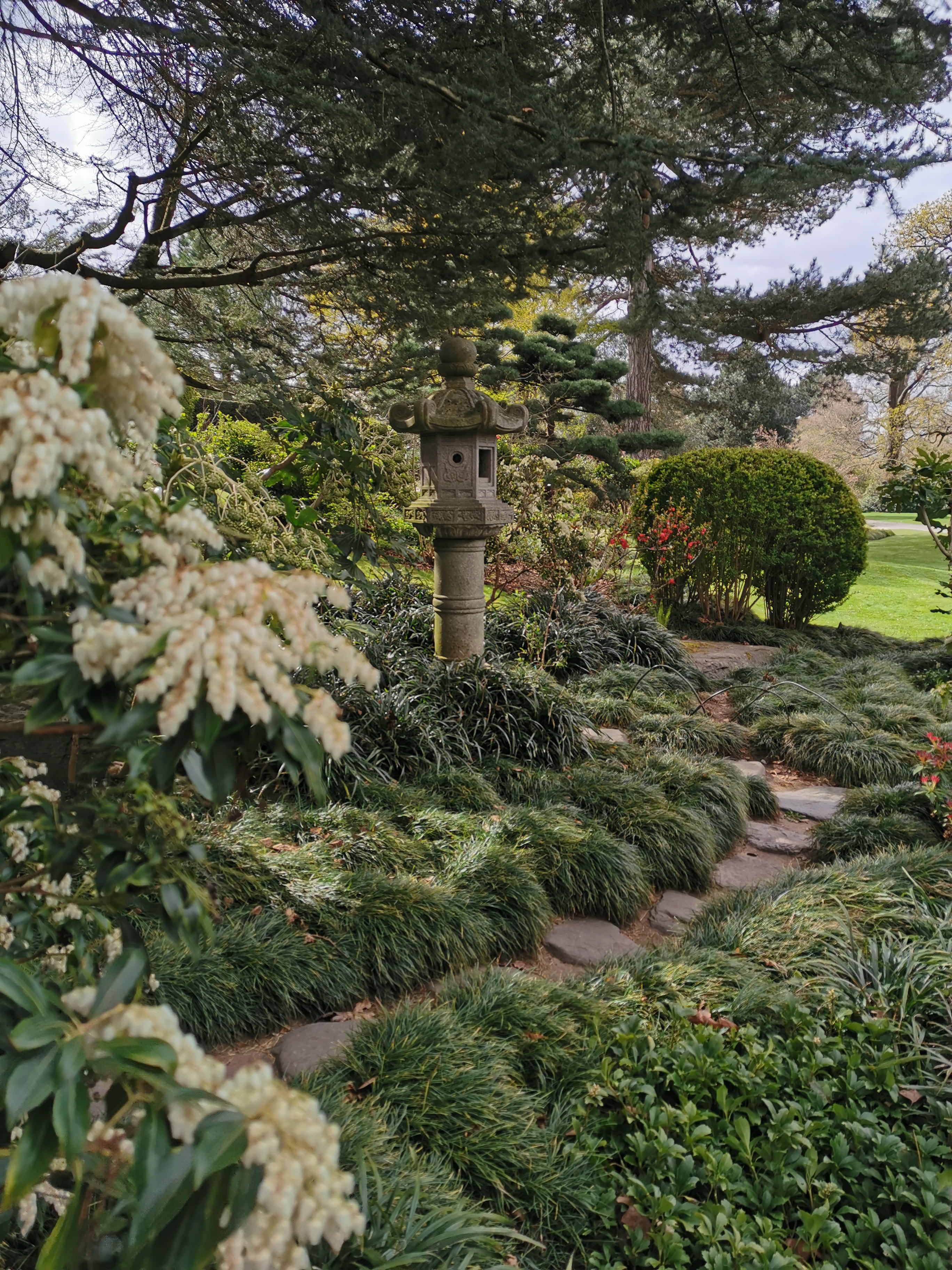 As many of us will be painfully aware, Japan is currently closed to international travel and the biggest news from the past couple of months is perhaps the formalisation of new domestic travel guidelines published in June.
You can find a round up of this, including hotel improvements here, as well as an update on airline initiatives here, and train sanitation here.
A lot of these will sound familiar at this stage but what is interesting is that a lot of what we in the UK and Europe would class as the ‘new normal’ is actually very much the ‘old normal’ for Japan. Add in safe and easy ways to tour Japan by car, bus or train, and the stresses of travelling in a new era suddenly seem a lot smaller...
As many of us will be painfully aware, Japan is currently closed to international travel and the biggest news from the past couple of months is perhaps the formalisation of new domestic travel guidelines published in June.
You can find a round up of this, including hotel improvements here, as well as an update on airline initiatives here, and train sanitation here.
A lot of these will sound familiar at this stage but what is interesting is that a lot of what we in the UK and Europe would class as the ‘new normal’ is actually very much the ‘old normal’ for Japan. Add in safe and easy ways to tour Japan by car, bus or train, and the stresses of travelling in a new era suddenly seem a lot smaller...
JAPANESE CULTURE
If you have a dig into this, some believe it comes from concepts of purification and cleanliness which are a big part of both Shintoism and Buddhism, Japan's major religions and this is particularly true of Shintoism, Japan's native religion. This can be seen regularly in things like washing hands before making a prayer or entering a sacred space, bowing instead of shaking hands, taking your shoes off before entering the house - these ideals have ingrained themselves in Japanese culture so much to the point where cleaning communal school spaces has become part of the Japanese national curriculum.
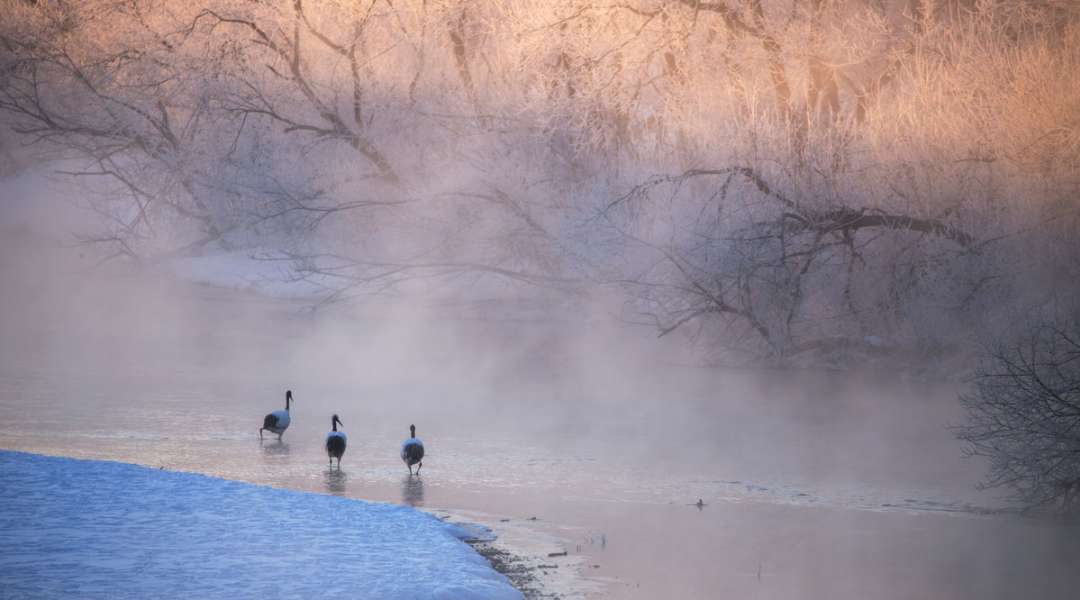
When you take a closer look, it's actually everywhere. One major example is hot springs, like the ones in the small town of Bessho Onsen in Nagano where the temple sits side by side the thermal baths. The idea is that you wash your whole body before and after using the hot spring to get rid of the superficial dirt while the hot spring itself helps with spiritual purification. The whole process is incredibly ritualistic and surrounded by etiquette - letting your hair touch the water is considered contamination and is accordingly thought of as taboo. Already, Japan has a clear conceptualisation of sanitation built into daily life.

Contactless payments is maybe another! Now seen as the safe way to transfer cash, in the Japanese countryside they have actually long had the alternative name of mujin hanbai 無人販売 or 'person-less selling', whereby passers-by can leave a donation at an unmanned stall in return for fresh vegetables, relying on a trust system set out by local farmers. The money can then be collected all together in a safe and controlled fashion later in the day. An enviable system that might only ever work in a country like Japan...

It's impossible to mention Japan and hygiene without referencing its mask-wearing culture, which actually stretches back as far as 100 hundred years around the time of the Spanish Flu, as you can see from these retro images. Ask Tokyo drag queen Temanda (above) and you’ll also see how developed facemask culture already is – she's felt the need to innovate her face masks and PPE because ‘she was bored by the idea of wearing the same old stuff that everyone always wears’. We're sure she means no offense! Japanese designers have also been finding new ways to vamp up a mask, like these ones by Takahashi Hiroko (have a go at making one yourself!)

Still that’s not to say that Japan has not been proactively stepping up its game. Using traditional Japanese practices as well as new ones, sanitation regulations have been established across every industry at a governmental level, not just travel. New initiatives are not restricted to but include the likes of:
- Temperature checks at check-in and stickers placed across the seam of doorframes by Prince Hotels & Resorts to reassure customers that room have not been tampered with or entered post-sanitation.
- The summertime ski resort of Gassan which was able to set the hygiene precedent for the coming winter ski season since its opening in June, at the same time that Rusutsu resort in Hokkaido began disinfecting its gondolas between each ride, giving the ski resorts a big headstart in preparation for this coming ski seaons. Gear rental company Rhythm Japan, who opened their fourth and largest store this year, also started providing equipment deep cleans and free cancellation guarantees on orders. Their new flagship store joins the Park Hyatt Hanazono, a new Ritz Carlton and a slew of boutique chalet properties like the Hinode Hills, in opening in Niseko this year in time for winter 2020/2021.
And in the most futuristic of happenings, zero-touch holographic screen technology previously aimed at the entertainment industry has generated discussion as to whether this can be rolled out nationally to do away with high-touch surfaces, while the government and road authorities are due to discuss and examine the feasibility of self-driving delivery robots - the internet giant Rakuten has already begun to roll prototypes out across chalet resorts in the Japanese Alps.
 JAPAN AS A DESTINATION
This is all also forgetting that Japan has so much variety as a destination that it was always going to be able to cater to changing needs.
One of the big fears we're all facing is the idea that the travel experience could be made frustrating by sudden closures or new Covid measures. Covid measures are certainly not to be taken lightly but the nature of Japan as a destination can go some way in guaranteeing refreshing cultural experiences that aren’t covid-contingent.
JAPAN AS A DESTINATION
This is all also forgetting that Japan has so much variety as a destination that it was always going to be able to cater to changing needs.
One of the big fears we're all facing is the idea that the travel experience could be made frustrating by sudden closures or new Covid measures. Covid measures are certainly not to be taken lightly but the nature of Japan as a destination can go some way in guaranteeing refreshing cultural experiences that aren’t covid-contingent.
Japan is far more of an outdoor destination that most people think – 69% forest (compared to about 13% in the UK), 73% mountain, more coastline than the US, New Zealand or Australia, more hot springs than any country in the world, and more ski resorts than any country in the world. This natural world has always been the setting for iconic experiences that don’t rely on regulated opening hours. We’re talking temple walks built into the mountain side, Japan’s famous curated gardens and castles, and pilgrimage routes that criss-cross its many islands. There are outdoor art installations on the art islands of the Seto Inland Sea and family-orientated at interactive sites all over Japan produced by Team Lab.
 And last but not least, there's every kind of remote getaway under the sun, for example:
- Numajiri Kogen Lodge a trailhead chalet set up originally by the first woman to climb Everest in her home region of Aizu
- Yakushima the island that inspired the moss forests of Studio Ghibli’s fantastical Princess Mononoke
- Tomamu, the sci-fi mountainscape that is host to the very insta-friendly sea of clouds phenomenon!
In short, interesting cultural experiences in Japan don’t have to be subject to closures or indoor spaces.
The second major worry we're all umming and arring over is the fear of having to travel in large groups in crowded spaces or accommodations.
Here, Japan is surprisingly simple for independent travelers. Indeed, backpackers can get by very easily and without too much of a cost and night buses can be a surprisingly comfortable, safe and efficient option.
Not only does Japanese hospitality have a way of frantically catering to your every need, but Japan’s trains also run ridiculously clean and reliable services, thanks to what has become known as the 7 minute miracle - in other words, the time it takes for a group of cleaners to offload the passengers, clear all the rubbish, report any lost luggage and sanitise the armrests, tray tables and window sills before the train sets off on its return journey.
And last but not least, there's every kind of remote getaway under the sun, for example:
- Numajiri Kogen Lodge a trailhead chalet set up originally by the first woman to climb Everest in her home region of Aizu
- Yakushima the island that inspired the moss forests of Studio Ghibli’s fantastical Princess Mononoke
- Tomamu, the sci-fi mountainscape that is host to the very insta-friendly sea of clouds phenomenon!
In short, interesting cultural experiences in Japan don’t have to be subject to closures or indoor spaces.
The second major worry we're all umming and arring over is the fear of having to travel in large groups in crowded spaces or accommodations.
Here, Japan is surprisingly simple for independent travelers. Indeed, backpackers can get by very easily and without too much of a cost and night buses can be a surprisingly comfortable, safe and efficient option.
Not only does Japanese hospitality have a way of frantically catering to your every need, but Japan’s trains also run ridiculously clean and reliable services, thanks to what has become known as the 7 minute miracle - in other words, the time it takes for a group of cleaners to offload the passengers, clear all the rubbish, report any lost luggage and sanitise the armrests, tray tables and window sills before the train sets off on its return journey.
 If the 7 minute miracles aren’t convincing enough, holidays by RV and car rental are much more feasible than people imagine - check out Dream Drive for an example. Japan drives on the same side of the road as us here, so with the addition of English-language road signage and GPS fitted to the majority of cars, hopping in a rental is simple and offers not only the opportunity to swerve public transport but to see a whole new side to Japan. New regional and national toll road discount passes have also helped make this process even cheaper, and smoother.
If the 7 minute miracles aren’t convincing enough, holidays by RV and car rental are much more feasible than people imagine - check out Dream Drive for an example. Japan drives on the same side of the road as us here, so with the addition of English-language road signage and GPS fitted to the majority of cars, hopping in a rental is simple and offers not only the opportunity to swerve public transport but to see a whole new side to Japan. New regional and national toll road discount passes have also helped make this process even cheaper, and smoother.
And people who are particularly concerned about sharing communal spaces in bigger accommodations will be very pleased by the wealth of unique independent holiday lets available in Japan: - Iconic machiya townhouses in Kyoto - Renovated kominka farmhouses in places like the Iya Valley - Historic residences of the castle town of Ozu, which even include the chance to hire out the only room in the castle itself! There is no doubt that travel is changing - and that Japan is right there with it, bringing all it has always had to offer as well as a constantly evolving approach to hospitality! So what's the Ja-plan, then?













